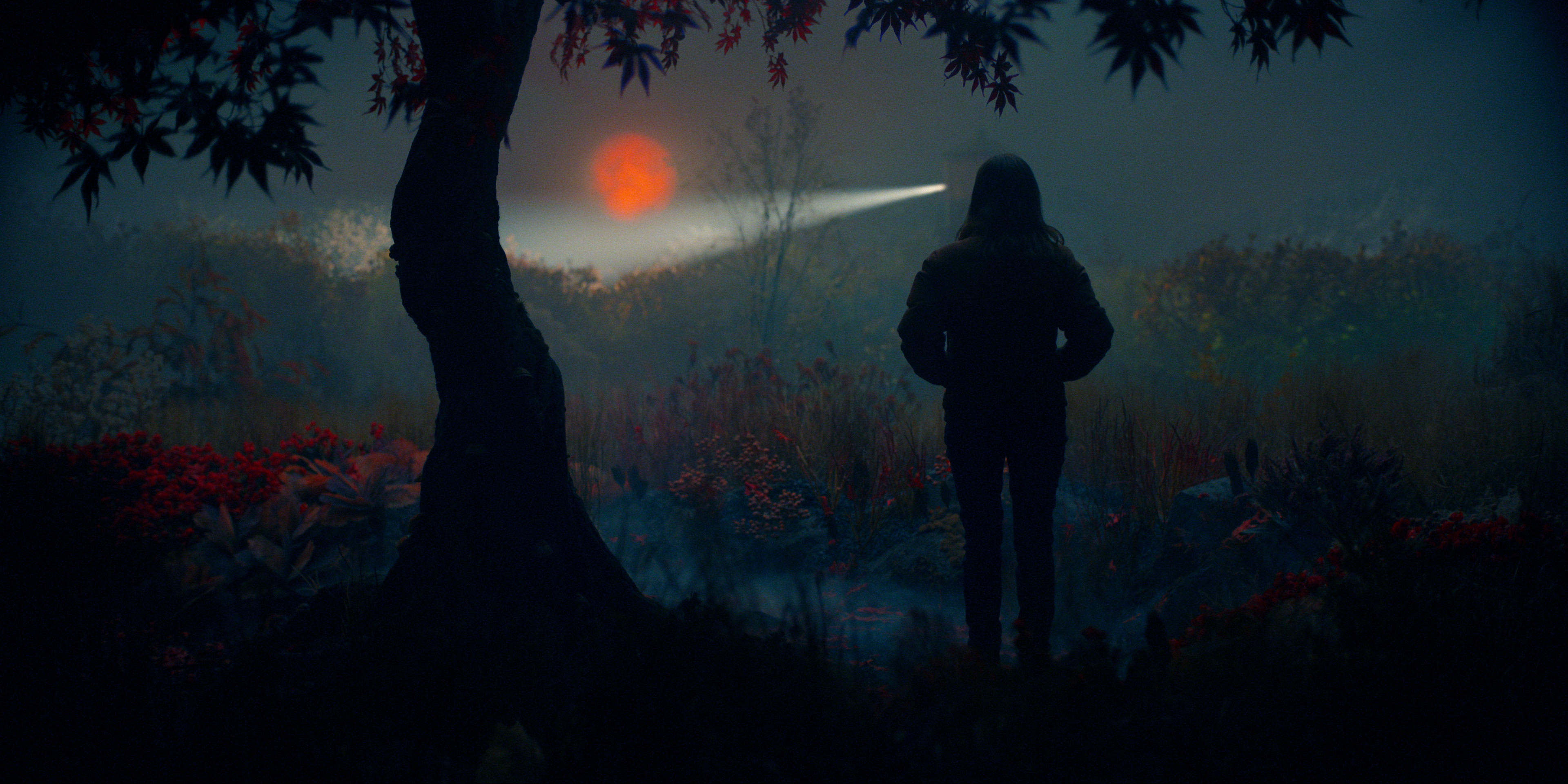
Whatever hardcore Stephen King fans get out of “Lisey’s Story,” with its suggestions of a writer’s supernatural powers and “visions,” haunted childhoods aging into crippling adulthoods and a post-mortem “bool (treasure) hunt” as the last gasp of a great love affair, I found it most fascinating in its dissection of fame and fandom.
Does that sound like “Misery?” That’s not the only prior King work referenced in this self-adapted screenplay — a violently obsessed “biggest fan,” a honeymoon in a snowy New Hampshire version of “The Shining’s” Overlook Hotel, torturing children with just a whiff of “It” — keen-eyed fans will find an Easter Egg here and there.
There’s a familiarity to all of this that gives the tale a “Stephen King’s Greatest Hits” feel, complete with flashbacks decorated with the music of King’s youth — Patsy Cline and Hank Williams and Roy Orbison.
Your patience for this eight part series may be gauged by your degree of devotion to Mr. King. I found it slow, obscure, structured to maximize the tedium and obscurity, and thus a little wearing. But then I didn’t get all the way through “Mr. Mercedes,” if that matters.
If King is anything at all like the writer character Scott Landon, whose fans have developed a cultish devotion that didn’t end with his death, then the Dean of America’s suspense/horror/fantasy novelists sees himself in a John Lennon light. Of course King has fans on the lunatic end of the spectrum, like the one who killed Lennon, like the one Landon attracts in “Lisey’s Story.”
Landon (Clive Owen, seen in flashbacks) is a tad messianic with “healing” powers, a creator of worlds that fans — some of them “not wired right” — will not let go of, much like his widow Lisey (Julianne Moore) is not ready to let go of the husband she lost.
Landon is dead. His wife is consumed with a life-draining grief, communicating with him in dreams, losing herself in flashback reveries. She needs answers, and he left her clues, “bools,” to lead her…back to him? To answers? To closure?
Why exactly is he dead if Lisey “saved” him? And there was this supernatural “All Landons are fast healers” thing he kept repeating to her, and even demonstrated to her. The movies beat that gimmick to death long before King published this novel (in 2006).
Lisey has Landon’s legacy to deal with, and a pushy academic (Ron Cephas Jones of “This is Us) all but demanding that she surrender Scott’s papers to a particular university.
As Lisey “saved” Scott from a crazed fan’s assassination attempt at a ground-breaking at that college and she’s not keen on that professor’s “role” in that rescue, she is hell-bent on preventing that handover, which includes unpublished works, no matter what the “fans” want.
“Most of them love you!”
“But it only takes one who doesn’t.”
Dane DeHaan channels Mark David Chapman (sans glasses) as an eerily obsessed, dead-eyed fanatic who takes this insult to academia, Landon’s legacy and his own ability to have more Landon stories, personally — and in the most psychotic ways.
There’s this Delphic pool where “The waters” have the power to not just heal, but to fascinate,” that may exist in more than just Scott’s fictive imagination.
“I have visions,” he always said. “I write them down. People pay to read them.”
The one person most connected to that “water” and Scott’s “world” might have been Lisey’s older sister Amanda (Joan Allen). But she’s gone mad, cutting herself even in the mental institution where Lisey and sister Darla (Jennifer Jason Leigh) have placed her.
So the threat is murderously real and in the physical world. The “help” might be in Scott’s “bools,” little clues, his supernatural “other world,” or it might be in Amanda’s cracked mind and her ready access to that world.

Is there any autobiography in “Lisey’s Story,” which one of the works King has labeled “his favorite” novel rather the way Cher is always labeling things “farewell tours?” Perhaps. Let’s hope not much.
The most adult thing presented here isn’t the fantasy escape from grief but the grinding, friction-causing shared responsibility of dealing with a mentally ill sibling given to cutting messages on her arms. Moore, Leigh and Allen are a perfectly matched trio of sisters, even if Amanda’s mental “escapes” to that pool are stingy with revealing their alleged meaning.
The film is at its most fraught whenever DeHaan is in the picture. He may play this stalking, threatening fan in one note, but it’s a helluva note.
But the series is at its eye-rolling worst in the endless Owen flashbacks, all pitched in somber-voiced tones, memories inside of memories, an invented language of childhood magic, “powers” and monsters. His performance doesn’t get across a love that transcends death. Owen isn’t usually as boring as he makes Scott.
The “drip drip drip” storytelling style of such series is built on us craving a solution to the plot threads, learning “the mystery” at the end of the “bool hunt,” figuring out if Lisey gets the better of her stalker or discovers the cure and closure for her grief.
The dialogue, however, is some of the sharpest King has slapped his name on.
“He said you would see it even before you saw it.”
As someone who never got that into the works of the omnipresent, prolific King, I lost that craving long before the author satiated it and finished “Lisey’s Story.”
MPA Rating: TV-MA, violence, profanity
Cast: Julianne Moore, Clive Owen, Jennifer Jason Leigh, Joan Allen, Dane DeHaan and Ron Cephas Jones.
Credits: Produced by J.J. Abrams, directed by Pablo Larrain, scripted by Stephen King, adapted from his novel. An Apple TV+ release.
Running time: Eight episodes @50-55 minutes each.

